Trilium Notes is An Open-source Personal Knowledge base App and Evernote Alternative
Are You Truly Ready to Put Your Mobile or Web App to the Test?
Don`t just assume your app works—ensure it`s flawless, secure, and user-friendly with expert testing. 🚀
Why Third-Party Testing is Essential for Your Application and Website?We are ready to test, evaluate and report your app, ERP system, or customer/ patients workflow
With a detailed report about all findings
Contact us nowTable of Content
Trilium Notes is a free open-source hierarchical note-taking application with focus on building large personal knowledge bases.
It comes packed with dozens of useful future to aid all kind of users. As its primary goal to build a knowledge base, it can be used by creative writers, to write novels, librarians, developers and and editors.
Features
- Rich WYSIWYG note editing including e.g. tables, images and math with markdown autoformat
- Multi-languages support
- Support for editing notes with source code, including syntax highlighting
- Note specific relations
- Comes with a built-in code editor
- Notes can be arranged into arbitrarily deep tree
- A single note can be placed into multiple places in the tree (see cloning)
- Fast and easy navigation between notes, full text search and note hoisting
- Seamless note versioning
- Note attributes can be used for note organization, querying and advanced scripting
- Synchronization with self-hosted sync server
- Sharing (publishing) notes to public internet
- Strong note encryption with per-note granularity
- Relation maps and link maps for visualizing notes and their relations
- Scales well in both usability and performance upwards of 100 000 notes
- Evernote and Markdown import & export
- Web Clipper for easy saving of web content
Screenshots
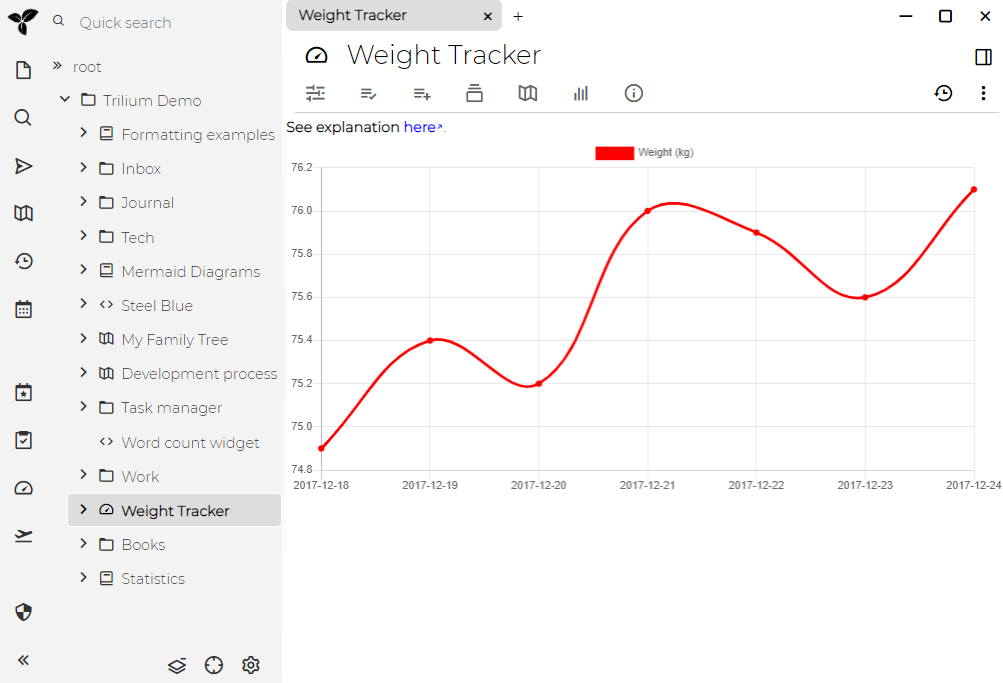
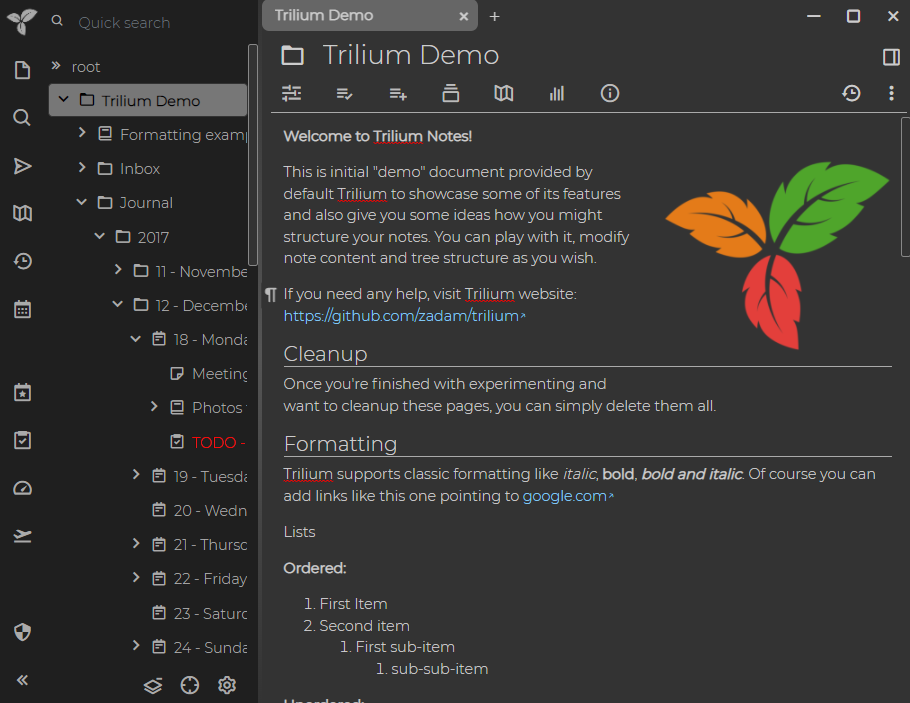
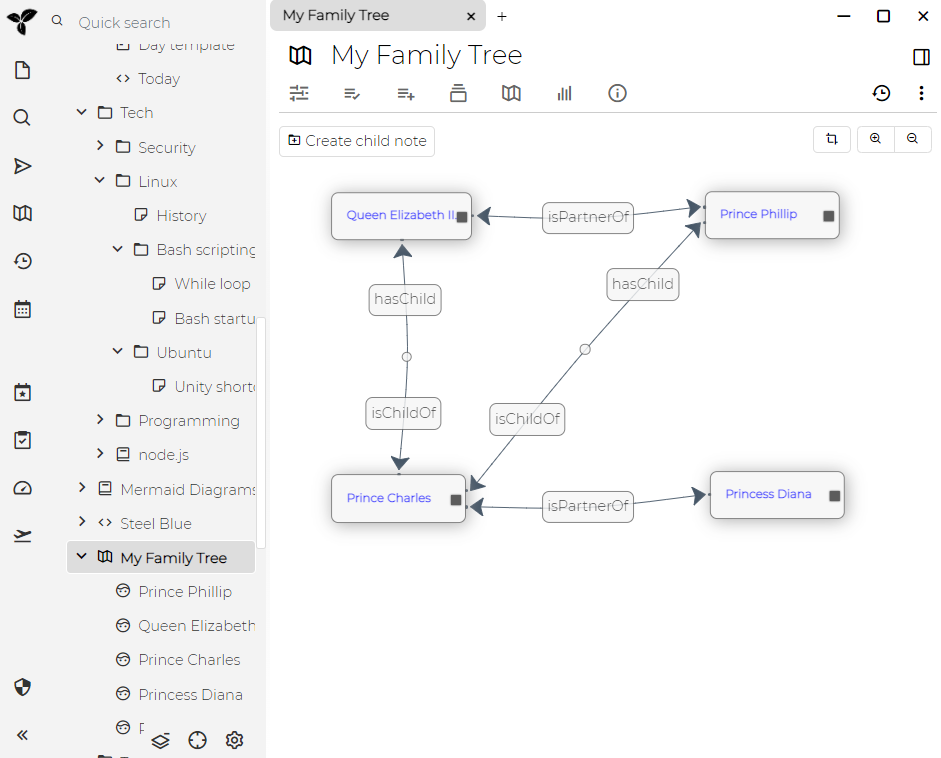
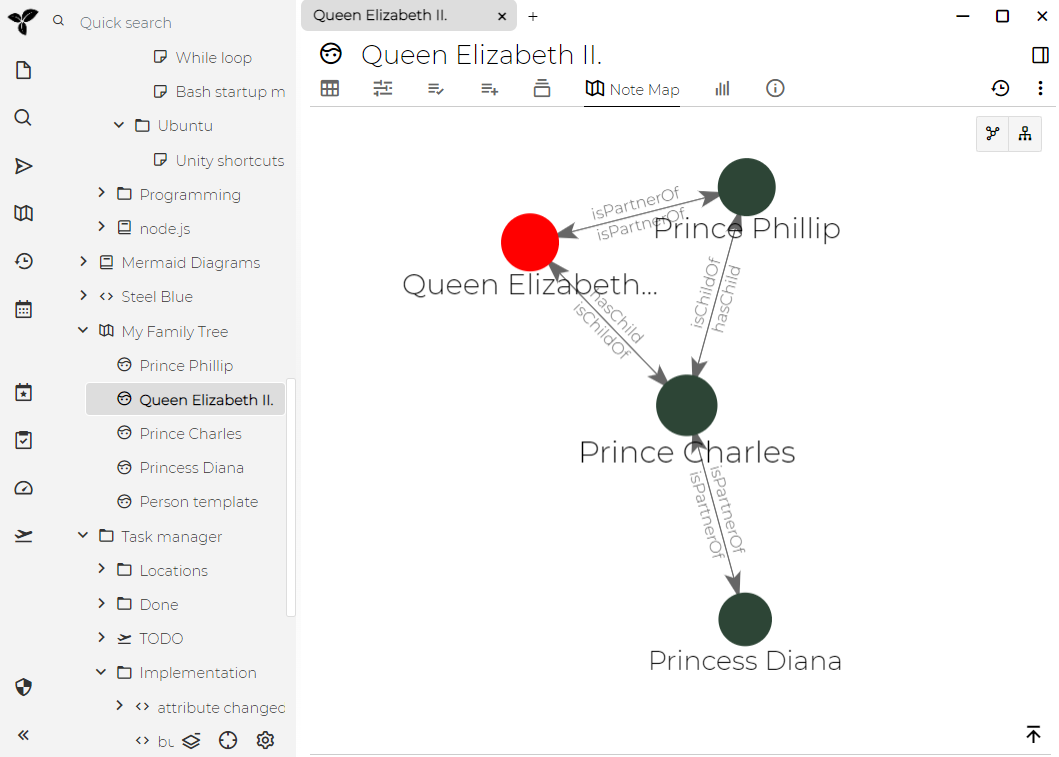
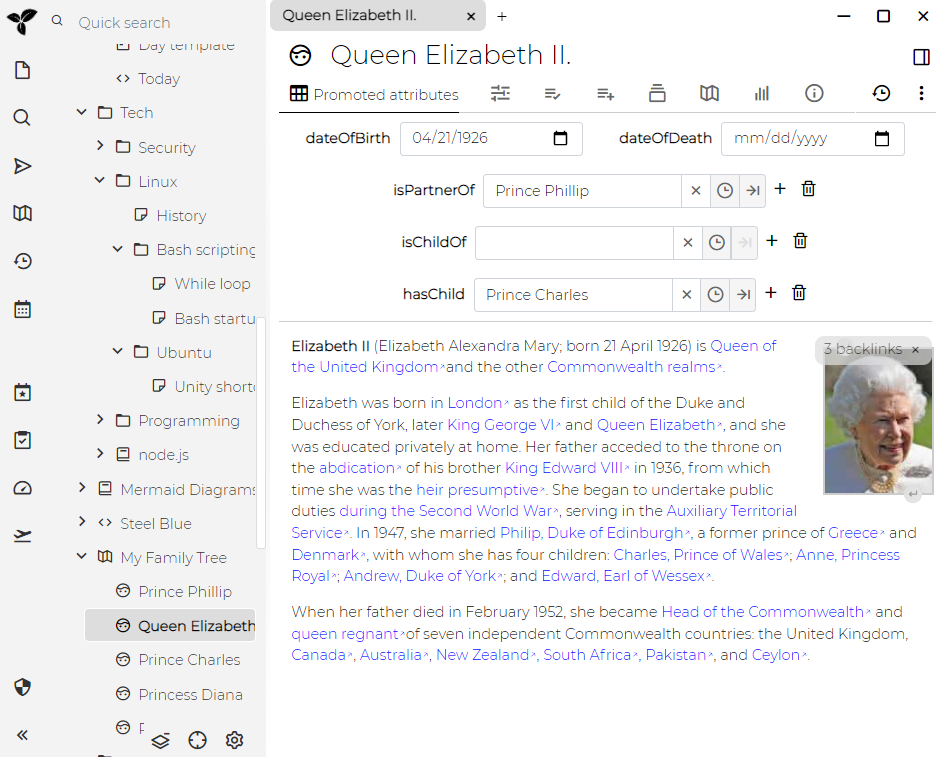
Platforms
- Windows
- Linux: Debian, Ubuntu, Linux Mint, Arch Linux, Fedora, MX Linux, Solus Linux
- macOS
License
AGPL-3.0-or-later










